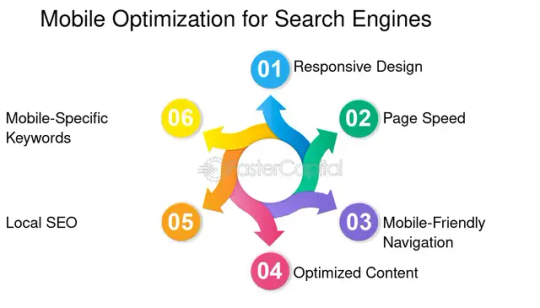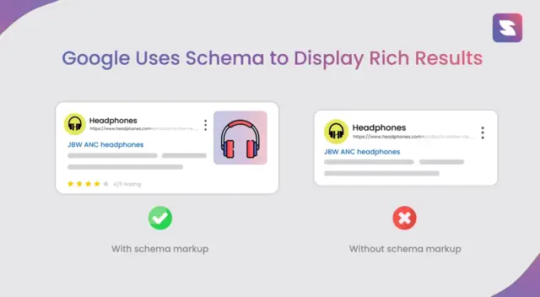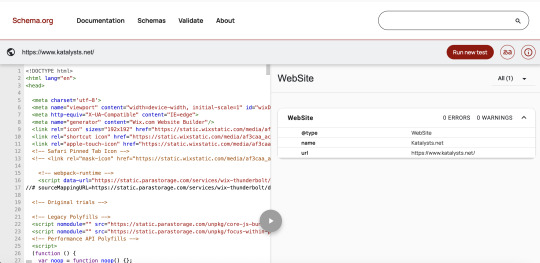#schema markup
Explore tagged Tumblr posts
Text
10 Proven Local SEO Strategies To Lead Your Market In 2025
Have you ever, as a business owner, questioned why your competitors' websites rank highly in search results while yours does not?

If your business is local, the strength of local SEO is often the solution. In 2025, local search will be more important than ever for boosting traffic and conversions and ensuring that your business stands out in the rapidly growing digital market.
Think about this situation: A prospective customer finds your business at the top of the search results when they are looking for your service in their location. This is how local SEO functions! It allows you to increase foot traffic, build relationships with those in your immediate vicinity, and, most importantly, broaden the reach of your company.
10 tried and true local SEO tactics will be looked at in this post to help you dominate your industry in 2025.
1. Claim and Optimize Google My Business (GMB)

You're losing out if you're not making Google My Business more optimized. When local clients search for a company similar to yours, Google My Business is the first result they see. Verify your listing, claim the profile of the company, and include any important details, such as your location, services, hours, and contact information. To increase your chances of being found in local searches, use local keywords to optimize the description.
Keyword Suggestions: "Google My Business," "local business listing," "optimize GMB profile."
2. Pay Attention to Local Keywords
You need to optimize your content for local keywords if you wish to rank higher in local searches. These are the search terms that your prospective clients use to locate nearby goods or services. For example, a Los Angeles bakery may aim to provide "the most delicious cakes in Los Angeles." Incorporate location-based keywords into your blog, GMB listing, and website.
Keyword Suggestions: "best [service] in [location]," "top [business type] near me."
3. Gather Positive Customer Reviews

Reviews are more than just a way to boost your reputation; they play a major role in local search rankings. Positive reviews not only attract more customers but also signal to Google that your business is trustworthy and relevant. Encourage your clients to ask happy customers to leave reviews on platforms like Google, Yelp, and Facebook.Keyword Suggestions: "positive customer reviews," "get reviews for local businesses."
4. Provide Locally Relevant Content
Content marketing is the cornerstone of any successful local SEO strategy. Create videos, blog posts, or social media content targeted to the local audience. For example, write about events, news, or topics relevant to your client's location and industry. This will help your business establish a reputation as a local authority.
Keyword Suggestions: "local blog topics," "community engagement," "local content marketing."

5. Create Local References
Every internet reference to your business's name, address, and phone number (NAP) is referred to as a local citation. Your chances of ranking well in local search results increase with the consistency of your NAP information across different directories and websites. Make an effort to get listed in reputable local directories, such as the Yellow Pages and Yelp.
Keyword Suggestions: "local citations," "business directory listings," "NAP consistency."
6. Optimize for Mobile Searches

Your client's website needs to be mobile-friendly because more and more customers are using mobile devices to search for businesses. Mobile-friendly websites rank higher thanks to Google's mobile-first indexing. For a flawless mobile experience, make sure that the content is optimized, navigation is simple, and loading times are quick.
Keyword Suggestions: "mobile-friendly website," "optimize for mobile SEO."
7. Implement Local Structured Data Markup (Schema Markup)

One effective technique to aid search engines in understanding the business facts of your clients is to use schema markup. By adding structured data to a website, it facilitates search engines' display of pertinent local information in search results, such as the name, address, phone number, and reviews of nearby businesses. Local schema markup implementation can improve search result listings and raise exposure.
Keyword Suggestions: "structured data markup," "local schema markup," "enhanced search listings."
8. Use Location-Based Landing Pages

If your client has multiple locations or serves different neighborhoods, create dedicated landing pages for each. These pages should target the specific location, use local keywords, and include information relevant to the local audience, such as neighborhood events or local partnerships.
Keyword Suggestions: "location-specific landing pages," "neighborhood pages," and "local landing page SEO."
9. Leverage Social Media for Local Engagement

You may improve your local SEO efforts and interact with your local audience by using social media networks. Your clients can increase brand recognition and authority in their area by utilizing location tags, joining neighborhood groups, and taking part in community discussions. Additionally, search rankings may benefit from social signals.
Keyword suggestions: "local social media marketing," "social media engagement," and "location-based hashtags."
10. Monitor and Track Local SEO Performance

Finally, it's critical to track and evaluate the results of your local SEO activities regularly. To monitor traffic, conversions, and keyword rankings, use tools such as Google Analytics and Google Search Console. This will enable you to hone and enhance your approach for greater outcomes.
Keyword Suggestions: "Local SEO analytics," "track local rankings," and "monitor local SEO performance."
Concluding remarks
Local SEO will be a crucial component for companies hoping to thrive in their local marketplaces in 2025. These tactics will help you, as a freelancer assisting customers, increase their visibility, increase traffic, and expand their business. Your clients will dominate their industry, experience steady growth, and build a devoted clientele by adhering to these ten tried-and-true principles.
It's time to start implementing the strategies you have learned that will help you dominate local search.
Are you prepared to help your clients grow their businesses? Get in touch with us right now, and together, let's maximize local SEO's potential!
2 notes
·
View notes
Text

I’ve just published a new blog post that dives into the power of Schema Markup and how it can significantly enhance your website’s SEO efforts. If you’ve been looking for ways to boost your search engine visibility and improve your rankings, Schema is an often-overlooked tool that can make a huge difference. This, in turn, can result in your site showing up more prominently in search results with rich snippets, review stars, FAQs, and other enhanced features that attract more clicks.
In this post, I explain exactly what Schema is, why it’s crucial for modern SEO, and how it can improve user engagement on your site. I walk through the different types of Schema Markup—such as LocalBusiness, Product, Article, and FAQ—and give you actionable tips on how to implement each one effectively. Whether you’re running an e-commerce site, a local business, or a blog, Schema can make your content stand out and improve your search engine results page (SERP) presence. I also share some of the best tools and plugins to help you easily add Schema to your site without needing advanced technical skills. If you're serious about SEO and want to see real, measurable improvements, this guide is a must-read! You can check out the full post here, and I’d love to hear your thoughts or answer any questions you might have in the comments!
2 notes
·
View notes
Text
On-Page SEO: Simple Techniques to Boost Your Website 🚀
If you want to improve your website’s search rankings, on-page SEO is the place to start! Here are some quick and effective techniques to help optimize your pages for better visibility on search engines like Google:
1. Optimize Title Tags and Meta Descriptions
Your title tag should be clear, concise, and include your target keyword. Meta descriptions should briefly describe the content, attract clicks, and also include the main keyword. Think of these as your page’s first impression!
2. Use Keywords Strategically
Place your primary keyword in the first 100 words of your content. Use related keywords throughout the post, but avoid keyword stuffing—keep it natural! Keywords should also appear in headings (H1, H2, etc.) to help structure the content.
3. Internal Linking
Link to other relevant pages within your website. This helps users navigate and improves site structure, which search engines love! Plus, it keeps people on your site longer.
4. Optimize URLs
Keep URLs short and descriptive. Include your primary keyword, and avoid using unnecessary numbers or symbols. Clean URLs are more user-friendly and help search engines understand your content better.
5. Use Alt Text for Images
Always use descriptive alt text for images. It improves accessibility and helps search engines index your images, which can lead to more traffic.
6. Mobile-Friendliness
Your website should be responsive and work well on mobile devices. Search engines prioritize mobile-friendly sites, so make sure your content is easily readable on phones and tablets.
7. Improve Page Load Speed
Fast loading times are crucial for both user experience and SEO. Compress images, enable browser caching, and consider using a Content Delivery Network (CDN) to speed things up.
8. Quality Content
Content is king! Write valuable, well-researched content that answers questions or solves problems for your audience. Google favors longer, in-depth articles that provide genuine value.
9. Use Structured Data (Schema Markup)
Help search engines better understand your content by using schema markup. It enhances rich snippets, such as star ratings, prices, and FAQs, making your content stand out in search results.
We have implemented all the above techniques on this website.
2 notes
·
View notes
Text
#web design#website#web design india#website design#website design india#web designers#seo#seo expert#seo expert india#seo services#schema markup#structured data
3 notes
·
View notes
Text
What is FAQ schema markup? - IT Mindslab
In the ever-evolving landscape of search engine optimization (SEO), staying ahead of the curve is crucial. One tool that has gained prominence in recent years is FAQ schema markup. This structured data technique provides a means to enhance your website’s appearance in search results and improve the user experience by providing quick answers to common questions. In this article, we’ll dive into what FAQ schema markup is, how it works, its benefits, and how to implement it effectively.
For more information: What is faq schema markup? - IT Mindslab
What Is FAQ Schema Markup?
FAQ schema markup is a type of structured data that webmasters and SEO professionals can add to their web pages to help search engines understand the content better. It’s specifically designed to highlight frequently asked questions and their respective answers on a webpage. When implemented, search engines can display these questions and answers directly in search results, often in the form of a rich snippet.
How Does FAQ Schema Markup Work?
FAQ schema markup uses a standardized format that includes specific properties and values within your website’s HTML code. These properties inform search engines about the structure of your FAQ content. Here’s a basic breakdown of how it works:
Question: You mark up each frequently asked question on your webpage using the <question> property.
Answer: You associate each question with its corresponding answer using the <answer> property.
FAQPage: You encapsulate all your questions and answers within a <script> tag with the type attribute set to "application/ld+json". Inside this script, you define a structured JSON-LD object that specifies the content as an FAQPage.
Structured Data Testing: Before publishing your page, it’s essential to use Google’s Structured Data Testing Tool or other similar tools to validate your markup and ensure it’s error-free.
Benefits of FAQ Schema Markup
Enhanced Search Visibility: FAQ rich snippets stand out in search results, increasing click-through rates and visibility.
Improved User Experience: Users can quickly find answers to their questions without clicking through to your website, enhancing the user experience.
Authority and Trust: Google often selects pages with FAQ schema markup as featured snippets, positioning your content as an authoritative source.
Catering to Voice Search: FAQ markup aligns with voice search queries, making it more likely that your content will be selected as a voice search answer.
Mobile Optimization: Rich snippets are especially beneficial on mobile devices, where screen space is limited.
Implementing FAQ Schema Markup
To implement FAQ schema markup effectively, follow these steps:
Identify Relevant FAQs: Determine which frequently asked questions are relevant to the content on your page.
Write Clear Answers: Craft concise and informative answers that directly address the questions.
Add Markup Code: Insert the structured data markup within the HTML of your webpage.
Test Your Markup: Use Google’s Structured Data Testing Tool to ensure there are no errors in your markup.
Monitor Performance: Keep an eye on your search performance to gauge the impact of your FAQ schema markup.
Advanced Features and Properties
Multiple FAQs: You can mark up multiple sets of FAQs on a single page, allowing you to address various topics or sections comprehensively. Each FAQ section should be enclosed within its own <script> tag with the JSON-LD structured data.
Accordion Format: FAQ schema markup often complements accordion-style FAQ sections on webpages. When users click on a question, the corresponding answer expands, providing a seamless and interactive user experience.
Nested FAQs: You can create hierarchical FAQ structures with nested questions and answers, offering in-depth information on a specific topic. Nested FAQs use the same properties (<question> and <answer>) within the JSON-LD structured data.
For more information: What is faq schema markup? - IT Mindslab
3 notes
·
View notes
Text
How to Add Schema Markup to a WordPress Blog Post
Target Audience: Beginners and intermediate bloggers looking to improve their SEO and search visibility. Purpose of Schema Markup: Boost search rankings and increase click-through rates by enabling rich snippets in Google search results. Schema Types Covered: Article, Review, and FAQ. Tools Mentioned: Rank Math, Yoast SEO, and Schema Pro plugins. Bonus Tips: Best practices to avoid errors and…
#beginner SEO guide#Rank Math#Rich Snippets#Schema Markup#Schema Pro#Structured Data#WordPress Plugins#WordPress SEO#Yoast SEO
0 notes
Text
Schema Markup SEO Tips to Improve Click-Through Rates

In 2025, just ranking on Google isn’t enough—you also need to stand out. That’s where schema markup comes in. By adding structured data for SEO, you can enhance your listings with rich snippets like reviews, FAQs, and product details—making users more likely to click.
Let’s explore how schema can improve your click-through rates (CTR) and overall site performance.
What is Schema Markup?
Schema is a type of structured data you add to your website’s code. It helps search engines like Google understand your content and display enhanced previews in search results—boosting visibility and clicks.
Why Use Schema in 2025?
With evolving technical SEO trends in 2025, schema is no longer optional. It's a necessity for sites that want:
Higher visibility in SERPs
Enhanced user experience (UX)
Increased organic CTR
Rich features like FAQs, reviews, and pricing
Rich Snippets and Schema Types to Use
Here are a few key schema types you should be using now:
FAQ Schema for SEO: Answers show up directly on Google—perfect for traffic and voice search.
Review & Rating Schema: Displays star ratings and builds trust instantly.
Product Schema: Show price, stock, and offers—ideal for eCommerce SEO.
Article Schema: Helps blogs rank in Google Discover and News.
How-To Schema: Step-by-step guides appear as visual snippets.
How to Implement Schema
Use Google’s Structured Data Markup Helper or tools like Merkle’s Schema Generator.
For WordPress users: Install plugins like Rank Math, Yoast SEO, or Schema Pro.
Validate everything using Google’s Rich Results Test to ensure it’s working correctly.
Conclusion: Make Schema a Part of Your 2025 SEO Strategy
Schema markup is one of the simplest yet most powerful technical SEO 2025 tools. By using structured data, you not only help search engines but also create better user experiences.
Whether it's adding FAQ schema or showcasing reviews, implementing schema can drastically improve CTR and visibility.
0 notes
Text
Does Clean Code Improve SEO? A Web Designer’s Perspective
[et_pb_section fb_built=”1″ _builder_version=”4.27.4″ _module_preset=”default” global_colors_info=”{}”][et_pb_row _builder_version=”4.27.4″ _module_preset=”default” global_colors_info=”{}”][et_pb_column type=”4_4″ _builder_version=”4.27.4″ _module_preset=”default” global_colors_info=”{}”][et_pb_text _builder_version=”4.27.4″ _module_preset=”default” global_colors_info=”{}”] Does Clean Code…
#blog traffic#brand authority#brand mentions#breadcrumb schema#business directories#clean code SEO benefits#content#content marketing#content strategy#content syndication#customer engagement#digital marketing#domain authority#Featured Snippets#future of programming#future of SEO#Google Assistant SEO#hyperlocal SEO#rich results#schema markup#Schema Markup SEO#search engine indexing#search engine optimization#search engine rankings#search engine visibility#SEO#SEO best practices#SEO file structure#SEO for developers#SEO hierarchy
0 notes
Text
Technical SEO क्या है? यह क्यों जरूरी है? कैसे करें?
यह ‘एसईओ’ सीरीज का चौथा भाग है। इससे पहले हम SEO (परिचय), On-Page SEO और Off-Page SEO के बारे में विस्तार से बात कर चुके हैं। आज इसी कड़ी को आगे बढ़ाते हुए हम टेक्निकल एसईओ के बारे में बात करेंगे। और जानेंगे कि Technical SEO Kya Hai? कैसे काम करता है? Technical SEO Factors कौन-कौनसे हैं? जिन पर हमें काम करने की जरूरत है? Technical Errors को कैसे Fix करें? और अपने Blog या Website का Complete…
#301 Redirect#Breadcrumb Navigation#Canonical Tags#Content Delivery Network (CDN)#Core Web Vitals#Crawling#HTTPS#Indexing#Internal Linking#Lazy Loading#Mobile-Friendliness#Page Load Time#Responsive Design#Robots.txt#Schema Markup#SEO audit#Site Architecture#Site Speed#Technical SEO#Technical SEO Checklist#Technical SEO in Hindi#Technical SEO Tools#XML Sitemap
0 notes
Text
Don't Let Google Erase Your Credibility. Fix Your Schema Now | How?
Schema Markup Audit & Schema Repair Service | Fix GSC Errors & Restore Rich Snippets Common Message GSC: Notify you through (while partial fixes):You requested that Google validate your fix for: Product snippets structured data issues on your property, https://www.effectedsite.com/. The fix requested was for the following issue: ‘Either “offers”, “review”, or “aggregateRating” should be…

View On WordPress
0 notes
Text
How to Use Schema Markup to Make Your Website AI-Ready - InCreativeWeb
Make your website AI-ready with schema markup! Learn the best practices to enhance your site's search engine visibility, boost click-through rates, and enable smarter content recognition by AI and search bots. It's a game-changer for SEO and user experience.
#AI Ready Website#Digital Marketing#Rich Snippets#Schema Markup#SEO Tips#Structured Data#Tech SEO#Web Optimization
0 notes
Text
Schema is Key

Understanding Structured Schema
Schema Markup is a standardised vocabulary (Schema.org) utilised by major search engines (Google, Microsoft, Yahoo, and Yandex) to help them better understand and categorise web content. By adding these tags to HTML, websites can provide explicit clues about the information that search engines index, which enhances their visibility in search engine results pages (SERPs).
tl;dr: Applying structured schema for websites lets you optimise for both search and AI results. Schema serves as subtitles for the internet, giving crawler bots the best contextual data direct from the publisher
This improved understanding can lead to "rich results" or "rich snippets," which are visually appealing and informative displays of content directly in search results, potentially boosting click-through rates (CTR). While Schema Markup is not a direct ranking factor, it significantly aids search engines in processing information by giving them them accurate context of website data, which is crucial for developing content knowledge graphs that support generative AI search and voice search capabilities.
Here are the key reasons why you should apply schema markup:
1. Improved Search Engine Understanding: Schema.org (often simply called schema) is a semantic vocabulary of tags or microdata that you can add to your HTML. It provides a standardised format of structured data that helps search engines like Google, Microsoft, Yahoo, and Yandex to better understand the meaning and context of your web page content. Search engines, despite advanced algorithms, do not interpret information in the same way as humans; schema markup helps fill these gaps, clarifying what your page is about. This improved understanding allows search engines to display your content in more relevant search queries, potentially bringing more users to your pages that actually match their topics.
2. Achievement of Rich Results (Enhanced Visibility):
Schema markup can enable your web pages to appear in rich search results (also known as rich snippets, rich cards, or enriched results). These are visually more appealing and informative than standard search results, often including details like star ratings, publication dates, images, prices, or event information directly in the Search Engine Results Pages (SERPs).
Rich results significantly increase the click-through rate (CTR) to your website by being more attention-grabbing and providing users with immediate, relevant information. This allows users to make an informed decision about whether to click, which can also reduce your bounce rate.
You can win significant "real estate" space on the SERP because rich results often take up more visual space, especially on mobile, making your listing stand out from ordinary snippets.
3. Support for Generative AI Search and Content Knowledge Graphs: Structured data provides the foundation for developing your organisation's content knowledge graph. This involves outlining relationships between entities on your site and across the web using a standardised vocabulary. This framework is crucial for training and grounding generative AI search engines and large language models (LLMs), as it relies on factual data to mitigate errors and "hallucinations". Knowledge graphs are identified as a critical enabler for generative AI adoption.
4. Future-Proofing for Voice Search: With the rise of voice search on smart devices and home assistants, schema markup can help prepare your website. Voice search users often seek quick facts, directions, or local business information. By adding relevant schema markup (e.g., Local Business schema), you can make your information more accessible for voice queries. Google is also working on a "Speakable" schema (currently in BETA) for articles and webpages, allowing home assistants to identify parts of an article suited for audio playback using text-to-speech (TTS) technology, thereby reaching a wider audience.
5. Community Standardisation: Schema.org is a collaborative, community activity founded by major search engines (Google, Microsoft, Yahoo, and Yandex) to create, maintain, and promote schemas for structured data. This shared vocabulary makes it easier for webmasters and developers to choose a schema and maximise benefits, ensuring consistency across the web.
While schema markup doesn't directly guarantee a #1 ranking, it helps search engines index your content better and presents it in a more engaging way through rich media, ultimately leading to increased visibility and user engagement.
But don't just take my word for it. Implement it on your own and see the difference. Start with Schema.org and build your website your way.
0 notes
Text
How Can I Improve The Visibility Of My Category Pages?
Boost your website traffic by optimizing your category pages for SEO. Learn proven strategies to improve visibility, increase rankings, and enhance user experience. How Can I Improve the Visibility of My Category Pages? Category pages play a crucial role in organizing website content, improving user navigation, and enhancing SEO performance. Whether you’re running an e-commerce store, a blog,…
#category page content#category page SEO#e-commerce SEO#improve category page visibility#improve website visibility#internal linking SEO#mobile SEO#optimize category pages#schema markup#SEO best practices#SEO for category pages#SEO keywords#SEO meta tags#SEO tips for category pages#structured data
0 notes
Text
Schema Markup for Business Growth
Schema markup is more than an SEO tactic—it’s a powerful growth strategy that can transform your website’s visibility and support AI initiatives. When implemented at scale, schema markup enhances search engine understanding, improves search visibility, and drives long-term business growth. But achieving these benefits requires a clear, strategic approach. If you’ve never implemented Schema…
0 notes
Text
0 notes
Text
6 Schema Markup Mistakes Hurting Your Local SEO (And How to Fix Them)

If you’re running a local business in Singapore: be it a hipster café in Tiong Bahru, a dental clinic in Bedok or a law firm in Raffles Place, your digital visibility isn’t just about having a website. It’s about getting found. That’s where Schema Markup (or structured data) becomes your secret SEO weapon.
But here’s the kicker: most SMEs in Singapore either don't use schema at all or they unknowingly implement it incorrectly. This means wasted SEO opportunities, less visibility on Google SERPs (Search Engine Results Pages) and ultimately, fewer customers walking through your doors.
Let’s break down the six most common schema markup mistakes that might be quietly sabotaging your local SEO in Singapore and how you can fix them fast.
1. Not Implementing Local Business Schema at All
This one’s a bit passe, but it happens more than you think.
Local Business schema tells Google key info about your business- name, address, phone number, opening hours and more. If you haven’t implemented it, you're essentially not telling Google who you are and what you do. That's a tall order SEO blunder in a local context like Singapore, where Google prioritises relevance and proximity.
Pro-Tip:
Use Google’s Structured Data Markup Helper to generate basic schema in JSON-LD format. Plug it into your <header> section or via Google Tag Manager.
2. Using the Wrong Schema Type
A local bubble tea shop using "Corporation" instead of "Local Business"? That's like listing your hawker stall as a multinational conglomerate- a major mismatch.
Singapore's business landscape is diverse. There are over 280 types of schema available. Choosing the wrong one affects how Google interprets your business and can hurt how you appear in relevant searches.
Here's a Quick Fact:
According to Moz, businesses that use specific schema types see up to 30% more rich results in SERPs compared to those using generic ones.
So here's what you need to do. Head over to schema.org and find the most accurate business type. Not sure which one to use? Go for “Local Business” and nest a more specific subtype inside.
3. Missing Key Fields in Your Schema
Many Singapore businesses include only the basics: Name, Address, Phone number (commonly called NAP). But to truly optimize for rich snippets, you need to flesh it out. Here's what we are talking about:
Opening hours
Service area
Ratings and reviews (even if you’ve just a few 4-star ones)
Geo coordinates (lat-long helps Google Maps)
Here's a key industry insight:

4. Inconsistent NAP Across Web and Schema
For instance, in Singapore, unit numbers and postal codes matter a lot. A missing "#05-12" or an outdated postal code can throw Google off.
If your schema says you're at “Orchard Road #03-09,” but your Facebook page says “Orchard Road #03-12,” Google flags it as inconsistent. This hurts your local rankings and confuses potential customers.
Here's how to fix it:
Ensure the NAP format is identical across your website, Google Business Profile and third-party listings like Street directory or SG YellowPages.
Use Singapore's standard address format, i.e. Block Number, Street Name, Unit Number, Postal Code.
5. Not Validating Your Schema Regularly
Even seasoned SEO specialists sometimes forget this: just because your schema is there, doesn’t mean it’s working.
In fact, your Schema can break during one or more of these instances:
CMS updates (hello, WordPress plugins!)
Theme changes
Manual edits to code
How to Fix It Like a Pro:
Validate your schema using Google’s Rich Results Test or Schema.org Validator. Set a monthly reminder to check it; it’s quick and prevents long-term damage.
6. Forgetting About Review Markup
Reviews are gold in Singapore’s kiasu culture. We all check Google ratings before buying or booking anything. Yet, many local businesses fail to add Review or Aggregate Rating Schema. This means they miss out on the juicy stars that appear in search results, which boosts CTR by up to 35%, according to Search Engine Journal.
Even if you only have a handful of legit reviews, it’s better than none. Embed them properly in your Schema using JSON-LD format. Avoid fake or auto-generated reviews, Google is smarter than that.
Technical Deep Dive: Implementing & Validating Local Business Schema in JSON-LD
If you're aiming to boost your local SEO performance in Singapore, correctly implementing Local Business Schema using JSON-LD is essential. Below is a ready-to-use example tailored for a digital marketing or SEO consultancy like Katalysts.
Step 1: Use the Right Schema Type
For Katalysts, the most suitable type is ProfessionalService under LocalBusiness.
{
"@context": "https://schema.org",
"@type": "ProfessionalService",
"name": "Katalysts",
"image": "https://www.katalysts.net/assets/logo.png",
"address": {
"@type": "PostalAddress",
"streetAddress": "329 River Valley Road",
"addressLocality": "Singapore",
"postalCode": "238361",
"addressCountry": "SG"
},
"geo": {
"@type": "GeoCoordinates",
"latitude": 1.2966,
"longitude": 103.8396
},
"url": "https://www.katalysts.net/",
"telephone": "+65 8096 3700",
"openingHours": "Mo-Fr 09:00-18:00",
"priceRange": "$$$",
"aggregateRating": {
"@type": "AggregateRating",
"ratingValue": "4.9",
"reviewCount": "102"
}
Step 2: Add JSON-LD to Your Website
Option 1: Insert directly into your site’s <head> section Option 2: Use Google Tag Manager for easier deployment and updates Option 3: If on WordPress, use a plugin like Rank Math or Yoast SEO Pro for built-in schema support.
Step 3: Validate Your Schema Markup
Use these free tools to test for errors or warnings:
Google Rich Results Test
Schema.org Validator
Merkle Schema Generator
Pro-Tip: Set a monthly reminder to revalidate your schema—especially after any CMS or plugin update.
Step 4: Keep Schema Up to Date
Schema isn’t static. Google's guidelines and search features evolve. Keep an eye on:
Google’s Structured Data Guidelines
Schema.org updates
Bonus: Schema isn’t a “Set and Forget”
Schema isn’t a one-time project; it’s like your kopi order and must be customized and adjusted over time.
Google updates its guidelines, new schema types get introduced, and your business evolves. Make schema audits part of your quarterly SEO housekeeping, just like checking your Google Analytics or updating product pages.
Here’s a quick relook at your Schema checklist:
Implement Local Business schema
Use the right schema type
Fill in all relevant fields
Ensure consistent NAP details
Validate schema regularly
Include reviews to earn those gold stars
Getting your structured data right isn’t just good SEO, it’s smart business. And in Singapore’s competitive local scene, it might be the difference between showing up first or getting buried under your competitors.
Want to optimize your schema for better local rankings?
Katalysts helps Singapore businesses unlock higher visibility with smart, structured data strategies. Reach out for a quick audit or consultation.
Source: This blog is first published on Katalysts.net
0 notes